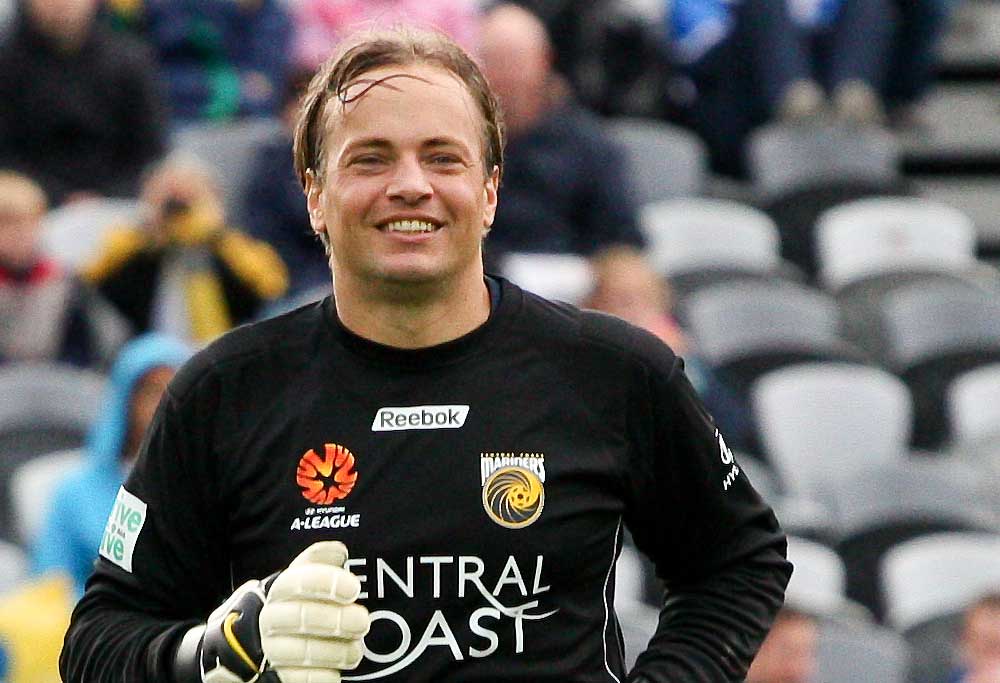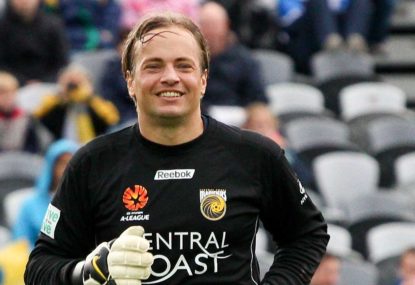Mark Bosnich is something of an enigma. Returning to Australia in 2008 appears to have been wonderful for his personality, family and career.
In a settled role at Fox Sports, he has begun to craft a persona based on fearlessness and honesty in his analysis of the issues that divide and excite fans.
Bosnich could never be accused of remaining silent around issues on which he holds a strong personal view. Many of those views seem logical and accurate, however every now and again he can let fly with a barrage of vitriol about individual players, teams or the state of the game itself.
Controversy and scandal have shadowed Bosnich for much of his career. Some, no doubt his own doing and others more situational, where he was nothing more than the meat in the sandwich, while others grappled for power and leverage around him.
Being of similar origins and age to Bosnich meant I was fortunate to see his career, both on and off the pitch, in its entirety. The full show is far from over, yet to say it has been an interesting ride is something of an understatement.
The boy from Liverpool in the south western corridor of Sydney was born nine months before me and lived approximately fifteen minutes away by car. Our paths never crossed, more’s the pity.
My focus was more golf, league and tennis-driven at the time, yet the young man was showing some of the talent that eventually took him to the highest of heights in the footballing world.

The passion and bravado in his words and opinions is perhaps reflective of the courage required for a brash young man following a dream to relocate overseas.
His early days with Sydney Croatia were formative for Bosnich, yet his subsequent move to Manchester United was indicative of his talent and where he really belonged.
Playing without a formal contract and making limited starts, Bosnich eventually returned home, disappointed to Sydney Croatia before Aston Villa rejuvenated his career.
Villa proved to be the longest stretch Bosnich would experience at a single club. There was some sense of stability, obvious success with a League Cup victory and a developing reputation in the English game, however the signs of future problems also began to surface.
The shocking headlines of Bosnich taunting Tottenham Hotspur supporters with Nazi salutes was not only offensive to the high level of Jewish support in the Club, but also to the broader football world. It went well beyond the acceptable.
The movement many footballers undertake, as money in the game has increased, has made players expendable and disposable.
When Bosnich lets rip at the establishment, it’s hard not to feel that his own personal experiences lace his commentary. Not so much that he is purely agenda driven, more a subtle awareness of the realities of professional football.
He’s seen it all before, the used-up pro sent on his way after years of loyal service and the selfish superstar who shows no loyalty to a club that was brave enough to give him his first shot at the big time.
Whichever side of the fence you sit, Bosnich can relate. His career was littered with moments of elation and joy where he was lauded by both Villa fans and the Club itself, as well as times where he was kept at arm’s length at Manchester United, underused it seemed, so no other club could enjoy his services.
As a third-string keeper, there appeared too much time for other temptations and influences and Bosnich’s drug issues were simmering away behind the football frustrations he was feeling.
The frustrations of his three seasons with United bled into his short, injury-affected time at Chelsea. Just a handful of games, a positive drug test and an eventual termination of his contract was a sad way for him to leave English football.
There were little glimmers of hope and cautious advances by other clubs, thinking he may have had something to offer, yet Bosnich had developed a substantial cocaine addiction, of which the details don’t require extrapolation.
The Bosnich we now know, was somewhat saved by his return to Australia. His short stints at the Mariners and Olympic were not football successes, yet were building blocks providing some stability to allow him to rebuild as a man.
That same man is the one we now see roaring confidently with that raucous laugh, as John Kosmina and Tara Rushton egg him on during Foxtel’s Shootout.
Overnight, Bosnich has suggested that Tim Cahill would not be out of place as Melbourne City player/manager. Surely a bridge too far in modern football with time limitations and media commitments ensured to drain every last drop from someone foolish enough to take on the role.
Yet he rightly points out that Cahill is contracted to coach in some capacity towards the end of his tenure at City. Maybe the loony goalkeeper has a point.
Tim Cahill has done the unthinkable for Australia for years and consistently surprises. Perhaps Bosnich is a visionary and sees something that we don’t.

The scathing criticism he delivered on the Wellington Phoenix, suggesting they offered the League ‘nothing’ was tough to hear. The Club held on, seemingly by the skin of their teeth last year with the extension of their license granted.
The new broadcast deal suggests their position will remain safe for some time, just as it puts into question what changes the FFA will be permitted to make in terms of expansion with a contract already firmly in place.
Is Bosnich correct in his analysis? Hard to tell. The Phoenix are incredibly inconsistent in their current form, yet do have a well-credentialed team with a host of high calibre players.
Maybe the long term evolution of the A-League doesn’t include a Phoenix team. The Wellington team has had some time to stick and as yet, there is little evidence of growth and progress in terms of becoming a team that can draw ten thousand plus fans each week and build a base of at least ten thousand members.
His goalkeeping analysis is incredibly sharp, intuitive and informed. Andrew Redmayne can testify to that.
It’s hard to believe that the basic flaws in some of the Australian ‘keepers techniques could be so easily spotted by a skilled technician like Bosnich, without other coaching staff acting upon the deficiencies.
Generally, Bosnich is close to the mark with his game analysis, he almost works a ‘good cop, bad cop’ routine with his fellow analysts such as Mark Rudan and Ned Zelic, who play a more conservative card in the most part.
Adam Peacock does a wonderful job of asking open ended questions and giving Bosnich the forum in which to present his passionate views, despite the fact that he might get snotted one day after ‘geeing’ up the boy from Liverpool one too many times.
At times, Bosnich can be touching, thoughtful and measured in his comments, particularly around some of the human stories in football. Elsewhere he can appear a bitter ex-player, looking for a fight with a football administrator with little more than a business or law degree.
Maybe the best thing about ‘Bozza’ and his greatest asset as a broadcaster is the challenge he presents for all of us; to work out which one is actually him.































































































